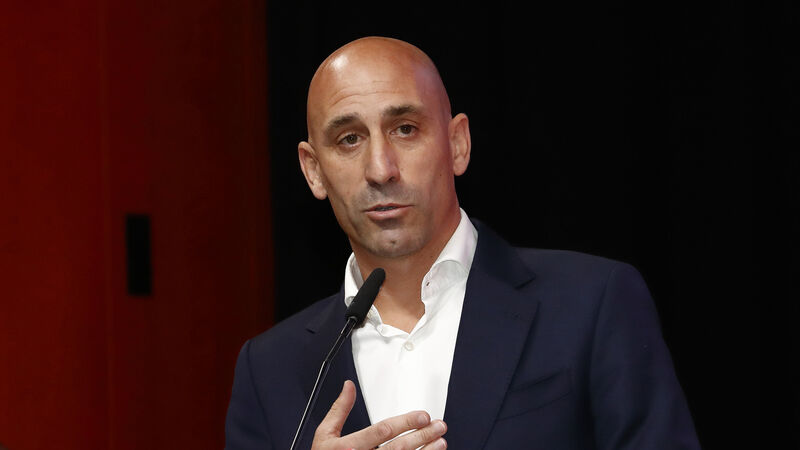Eimear Ryan: Let's hope it's really over for toxic masculinity detracting from women’s brilliance

TOXIC MASCULINITY: The president of the Spanish soccer federation Luis Rubiales speaks during an emergency general assembly meeting in Las Rozas. Pic: Real Federación Española de Fútbol/Europa Press via AP
It was never a meritocracy. Like many commentators who have been banging the drum of equal treatment for women’s sports for some time now, I felt certain that the skill, athleticism and quality of female players would be the deciding factor. Give us the funding and resources so that we can be our best selves on the field; give us consistent, accessible, non-patronising media coverage so that sports fans can follow teams and players and become invested in the rivalries and storylines.
For a while there, it felt like it was working. In Australia – a country not exactly renowned for its progressive gender politics – 75,000 fans turned out to watch the Matildas’ opening World Cup game against Ireland. The World Cup semi-final against England broke TV viewing records in Oz, with more than 11 million tuning in. The progress of women’s sports generally in recent years has been rapid, but this World Cup felt especially seismic. I felt that I was watching a new inclusive sporting culture unfold, of the sort my younger self dreamt of but was never sure would arrive.









